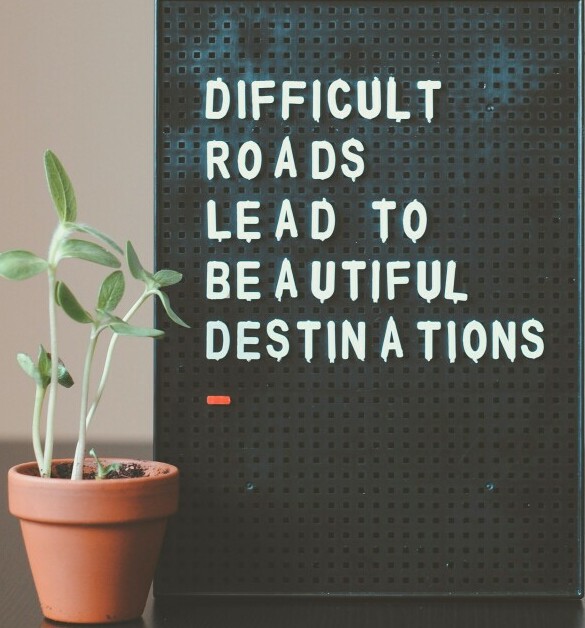I find that a deeper understanding of mental and emotional health unlocks a path to a more fulfilled life. Mental and emotional well-being isn’t just the absence of mental health conditions; it’s a vital part of your overall health. It’s about how you feel, think, and behave. Good mental health strengthens your capacity to handle stress, relate to others, and make choices that foster personal and professional growth. Our family has noticed that putting your understanding of this into effect is sometimes harder than just realizing it! Some of us need to try and even re-train our brain to be more positive and spend less time focusing on the negative all the time.

Why is this important to you? Because mental and emotional health touches every part of your day. It affects how you tackle job challenges, how you interact with family, and it can even influence your physical health. The connection is crystal clear: when you take care of your mental and emotional health, your quality of life significantly improves.
Perhaps you’re thinking about the strains of your own life, the relentless pace of modern work, and the complex personal pressures you face each day . You’re not alone “trust me we know”. These factors can chip away at our well-being, making it crucial that you have effective, practical strategies in place to keep your mental and emotional health in check.
I’m going to walk you through a series of intentional actions aligned with evidence-based principles, to help manage and improve your mental and emotional health. Remember that these are not just quick fixes; they are part of a longer journey toward a happier, healthier you.
Cultivating Positive Relationships
Human beings are social creatures. Our connections with friends, family, and colleagues can significantly affect our mental and emotional well-being. In fact, a wealth of research suggests that quality relationships act as a buffer against the stresses of life. So, to improve your emotional health, fostering positive relationships is a smart move.
One of the first steps is to reach out and strengthen ties with those you trust and who make you feel safe and happy. Regular catch-ups, whether in person, over the phone, or through video calls can keep these bonds strong. Listening and being listened to are keystones of good relationships.
Remember, it’s not just about quantity; the quality of your relationships matters immensely. It might mean spending more time with fewer people or redirecting your energies to more fulfilling connections. Importantly, don’t shy away from seeking new relationships, perhaps by joining clubs, classes, or online communities that align with your interests.
With relationships, boundaries are essential. They ensure mutual respect and prevent misunderstandings. It’s healthy to set limits and communicate your needs and preferences clearly. A relationship should bring joy, not continuous stress or discomfort.
Lastly, be open to giving and receiving support. Helping others can enhance your mood and self-worth, while allowing others to help you can make your relationships stronger. When you give without expectations and accept help graciously, the social bonds you create can be a powerful source of emotional nourishment.
As you nurture these relationships, you naturally build a community. This could be a close-knit group in your neighborhood or an extended network across the globe thanks to digital platforms. This sense of belonging can provide a comforting safety net, proving comfort when life throws you curveballs.
Contrary to the old saying, no man or woman is an island. We thrive on connections that nurture our spirits. It’s worth mentioning that while we need others, self-reliance is also crucial. Let’s dig into self-care next, because the relationship you have with yourself is the bedrock upon which all other relationships are built.

Developing a Personal Care Routine
You’ve probably realized the buzz around ‘self-care’ isn’t just white noise; it’s a pivotal part of maintaining mental and emotional balance. A personal care routine goes beyond the occasional spa day—it’s about regular practices that nourish your mind, body, and spirit.
So, how do you create a self-care plan that isn’t just a trendy to-do list? Start by assessing your daily life. Identify stress triggers and moments when you feel overwhelmed. Then, consider what calms you. Is it a walk outside, a quiet cup of tea, or journaling? Incorporate these into your daily or weekly schedule.
Meditation and mindfulness might seem daunting if you’re new to them, but they’re about being present. Apps or community classes can guide you through the process. Even a few minutes a day can strengthen your mental clarity and stress resilience.
Don’t overlook the power of physical activity. It’s not about marathon training (unless that’s your thing); it’s about movement. Exercise releases endorphins, often dubbed feel-good hormones, which can improve mood almost instantly. Simple activities like a brisk walk or a bike ride can make a significant impact.
Remember, tuning into what your body and mind need might require some trial and error. It’s okay if your self-care routine evolves over time. What’s important is that you’re taking steps, even small ones, towards improved mental and emotional health.
Learning and Growth: Lifelong Tools for Emotional Resilience
I’ve seen firsthand how leaning into learning and personal growth can fortify your emotional health. The act of learning doesn’t just add to your skillset; it can significantly boost your self-esteem and provide a valuable sense of accomplishment.
Let me share a clear example: imagine mastering a new language or instrument. The process improves cognitive functions and emotional well-being simultaneously. This is not just about acquiring knowledge but also about experiencing the satisfaction that comes from personal achievement.
Adopting a growth mindset is important in this journey. It’s about understanding that setbacks are not a reflection of inherent limits but opportunities for growth and improvement. Embrace challenges as stepping stones rather than stumbling blocks.
Creative pursuits such as painting, writing, or playing music can be especially therapeutic. They’re powerful forms of self-expression and can serve as outlets for managing stress, enhancing mood, and cultivating emotional balance.
In conclusion, I encourage you to see personal growth not just as a means to an end but as a journey in itself. With each new skill or piece of knowledge, you’re not only enriching your life but also reinforcing your mental and emotional fortitude. So go ahead, pick up that guitar, enroll in that cooking class, or start that book you’ve been meaning to read. Your future self will THANK YOU for the resilience you’re building today than turning straight to the negatives.
Why is this important to you? Because mental and emotional health touches every part of your day. It affects how you tackle job challenges, how you interact with family, and it can even influence your physical health. The connection is crystal clear: when you take care of your mental and emotional health, your quality of life significantly improves.
Perhaps you’re thinking about the strains of your own life, the relentless pace of modern work, and the complex personal pressures you face each day. You’re not alone. These factors can chip away at our well-being, making it paramount that you have effective, practical strategies in place to keep your mental and emotional health in check.
I’m going to walk you through a series of intentional actions aligned with evidence-based principles, to help manage and improve your mental and emotional health. Remember that these are not just quick fixes; they are part of a longer journey toward a happier, healthier you.

As you nurture these relationships, you naturally build a community. This could be a close-knit group in your neighborhood or an extended network across the globe thanks to digital platforms. This sense of belonging can provide a comforting safety net, proving invaluable when life throws you curveballs.
Contrary to the old adage, no man or woman is an island. We thrive on connections that nurture our spirits. It’s worth mentioning that while we need others, self-reliance is also crucial. Let’s transition to self-care next, because the relationship you have with yourself is the bedrock upon which all other relationships are built.
Remember, tuning into what your body and mind need might require some trial and error. It’s okay if your self-care routine evolves over time. What’s important is that you’re taking steps, even small ones, towards improved mental and emotional health.
Learning and Growth: Lifelong Tools for Emotional Resilience
I’ve seen firsthand how leaning into learning and personal growth can fortify your emotional health. The act of learning doesn’t just add to your skillset; it can significantly boost your self-esteem and provide a valuable sense of accomplishment.
Let me share a clear example: imagine mastering a new language or instrument. The process improves cognitive functions and emotional well-being simultaneously. This is not just about acquiring knowledge but also about experiencing the satisfaction that comes from personal achievement.
Adopting a growth mindset is pivotal in this journey. It’s about understanding that setbacks are not a reflection of inherent limits but opportunities for growth and improvement. Embrace challenges as stepping stones rather than stumbling blocks.
Creative pursuits such as painting, writing, or playing music can be especially therapeutic. They’re powerful forms of self-expression and can serve as outlets for managing stress, enhancing mood, and cultivating emotional balance.
In conclusion, I encourage you to see personal growth not just as a means to an end but as a journey in itself. With each new skill or piece of knowledge, you’re not only enriching your life but also reinforcing your mental and emotional fortitude. So go ahead, pick up that guitar, enroll in that cooking class, or start that book you’ve been meaning to read. Your future self will THANK YOU for the resilience you’re building today.
We hope you all enjoyed and can get some sort of positive enlightening from this article. Also we would love to hear from out audience so maybe we can learn together and strive together. As always please leave any feedback you may have below and we will get back to you in a timely manner!